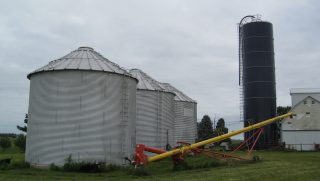Global agricultural unrest has led to farmer protests spanning Europe and Australia, challenging supposed “green” and money-saving policies that threaten to impact farmer livelihoods.
Today, German farmers have been blockading Berlin with more than 500 tractors and trucks parked by the city’s historic Brandenburg Gate, protesting subsidy cuts. Protests started in December when cuts were announced to agricultural diesel and agricultural vehicle exemptions as part of an agreement reached by the government attempting a stopgap in the country’s 17 billion-euro hole.
The German Farmers’ Association, or DBV, has asked the government to scrap the plans to cut farmer subsidies. Their efforts have been rewarded with a watered-down version of the proposal to end farmer tax breaks. Farmers say it’s not enough.
“We demand the complete withdrawal of these tax increases without ifs and buts,” the president of the farmers’ association, Joachim Rukwied, told Bild.
Protests are expected to last throughout the week, causing traffic jams, chaos, and blockades across the country. The DBV’s vice president, Günther Felßner, warns that if the government’s proposals are not taken off the table by Jan. 15, “We are ready to paralyze the country like Germany has never seen before.”
French farmers spray government buildings with manure in protest
Germany isn’t the only country affected by the European Nation’s clash between the continent’s green movement and farmers. The movement threatens to impact built steam with the U.N.’s first-ever roadmap targeted to address farming emissions at the COP28 climate summit held in December.
French farmers are also feeling the pressure of increased diesel prices, higher taxes, climate policies, and agricultural policies. But nobody protests quite like French farmers.
Last month, farmers in France gathered tractors and headed to Dijon, France, spraying Regional Council buildings with manure in protest against the elected assembly. Road signs were turned upside down at the entrances to towns and villages along the way.
Farmers cite high taxes, increasing cost of farm diesel, late payment on EU subsidies, regulations imposed on agricultural workers, and competition from imports in their unrest. Sound familiar?
Last year, farmers drove tractors through Paris protesting pesticide restrictions and other regulations that they said threatened farm production. In February, the EU court overturned a French policy that allowed sugar beet growers to use an insecticide banned by the EU.
The French farmers’ union says it has secured a decrease on two taxes for the coming year.
Unrest in the Netherlands following slated agricultural cuts
Dutch farmers found themselves at the hub of that global culture war as the second-largest exporter of agricultural commodities behind the United States. A 2019 court in the Netherlands ruled that the nitrogen permits system was failing to prevent harmful missions. At the time, the ruling didn’t seem like a big deal. That is until the Dutch government decided last year to press on in their efforts to make farming more ecologically stable.
With months of protests by farmers, an electoral rebuke, and tractor-filled protests, a grassroots protest movement driven by Dutch farmers had hoped to stop the government’s plan to shutter thousands of farms to meet the goal of reducing harmful nitrogen emissions in half by 2030. Farmers say that the cuts will change the agriculture industry forever. It’s an interesting move for a country that had prioritized food security a century ago.
In June and July, convoys of tractors across the Netherlands were organized as farmers took to the streets protesting the cuts. Despite continued discussion between farm groups and the Dutch government, the government said on Nov. 25, that it would adopt measures set aside in a report by the former prime minister Johan Remkes.

Australian farmers protest 10,000 km of power lines on farmland
It’s not just the European Union that’s facing farmer unrest regarding green government movements. Although Australia boasts ties to the EU and is their third-largest trading partner, their ties with the United Kingdom were cut in 1986.
However, Australian farmers are refusing to be part of a government initiative to increase renewable generation and reduce emissions by 43 percent by 2030. To accomplish this goal, Australia has announced its intent to build 10,000 km of power lines connecting wind, solar, and hydro projects to the grid.
Frustrated farmers from Western Victoria also took to the streets, clogging them with tractors while circling Parliament with signs protesting the overhead lines.
Landowners are protesting the cables set to suspend over their land, saying that the “scars” will inhibit farming and create fire hazards. The farmers say that the lines need to be buried underground.
So far, Transgrid, the company set to install the lines, says that they’ve only received about 55 percent of landowner permission to build on their land.
»Related: Perspective: The EU’s carbon-neutral farm plan masks the real impact


